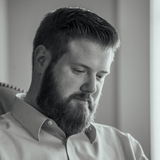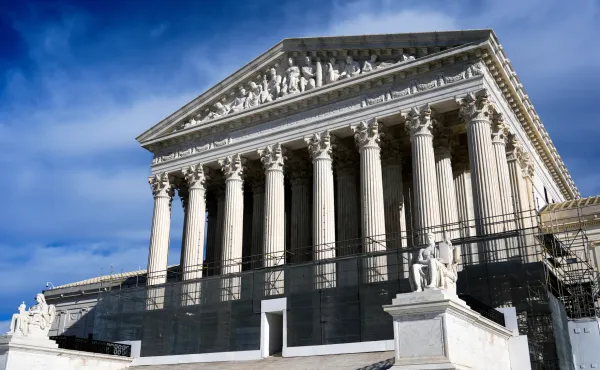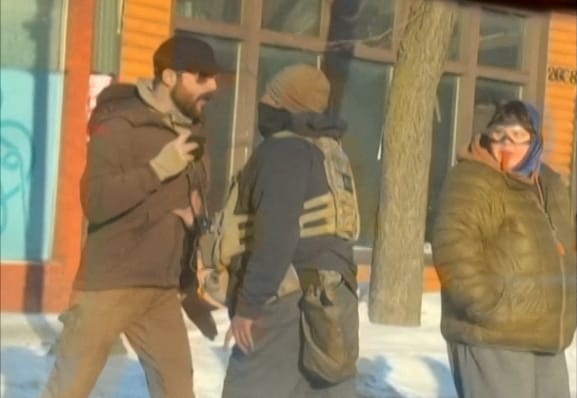The Peach That Broke the System
Introduction
Greetings, church family and friends,
“Taste and see that the LORD is good; blessed is the one who takes refuge in Him” (Ps. 34:8).
There is a troubling and increasingly common trend in Christian circles today: the insistence that lived fruit—the very evidence Scripture tells us reveals God’s work—must be reinterpreted, diminished, or explained away whenever it challenges a preferred theological system.
A family walking faithfully for generations?
Young people who grow up loving God, honoring their parents, embracing marriage, and flourishing in life?
“Be careful,” the experts warn. “That may look like fruit, but appearances deceive. Real fruit must fit the categories we have already established. If your tree bears what we did not predict, the issue lies with your fruit—not with our framework.”
In other words: Don’t trust the orchard. Trust the diagram of the orchard.
But Scripture speaks in terms far simpler, far earthier, and far more threatening to sterile abstraction:
“You will know them by their fruits.”
Which brings us to a simple metaphor I penned last spring.
Enjoy.
The Peach That Broke the System
An allegory for those who have come to trust their systems of truth more than the truth those systems were meant to describe.
Dr. Timothy Meticulous was the reigning authority of Southwestern Prunus Persica University—keeper of the canons, guardian of the orthodox peach tradition, lecturer in Comparative Peach Abstractions and Advanced Horticultural Dogmatics.
He knew every accepted formula for what a peach must be and every reason real peaches so often failed to measure up.
So when he took the stage at the annual Peach Growers Association Symposium, no one expected anything less than doctrinal precision.
He delivered.
In elegant, airtight prose, Dr. Meticulous demonstrated—conclusively, definitively, and beyond any possible experiential contradiction—that Georgia’s red clay could not, under any circumstances, produce peaches.
Every respectable model, every peer-reviewed simulation, every sanctioned historical interpretation confirmed it.
He warned the audience against the naive assumption that fruit on trees proves anything at all.
“Orthodox horticology,” he insisted, “teaches us that peaches cannot flourish here. Therefore, any supposed flourishing must be attributed to misinterpretation, wishful thinking, or the dangerous influence of folk agronomy.”
Then he unveiled his solution: a complex grafting theory involving lemon rootstock and multi-layered bio-agronomic abstractions—ingenious, intricate, and entirely untested in soil.
The scholars applauded.
Then Burt Goodsoil stood.
A man with soil permanently pressed into the lines of his palms, Burt did not clear his throat or bow to the stage.
He simply asked, “Doctor, may we see your orchard?”
The question cracked across the room like a snapped branch.
“My orchard?” Dr. Meticulous repeated, half laughing.
“I am a theorist. My calling is to preserve the purity of peach orthodoxy. I do not dabble in the untidy ambiguities of actual trees.”
He held up his papers as if they were relics. “Here is our evidence. Here are the models. Here is the consensus. We know what peaches ought to be, despite what untrained eyes may claim.”
Burt nodded slowly.
“Then you should know,” he said, turning toward the open barn doors, “that this symposium is in my barn, . . . and those are my trees.”
Through the doorway, the orchard spread across the evening hills—rows of thriving trees, heavy with fruit.
The branches bowed under their own abundance, glowing gold in the late sunlight.
“My family has tended these trees for four generations,” Burt said.
“My grandfather planted the first saplings in this same red clay. We’ve harvested peaches here every summer of my life. Children grow up under these branches. Marriages are strengthened in the shade. The old die with the scent of these orchards on their hands.”
He lifted a peach from a nearby crate—warm from the sun, fragrant, impossible to ignore.
“So I’m wondering,” Burt continued quietly, “what your theory makes of all this.”
A murmur rose as peaches were passed through the crowd.
Even Dr. Meticulous found one thrust into his hand.
He bit it reflexively, trying to maintain dignity as juice streaked down his chin.
“A pleasant cultural artifact,” he said, dabbing at himself. “But experience is not authority. Taste is not truth. Fruit tells us nothing. You cannot judge a tree by its fruit; you must judge fruit by the established doctrine. Otherwise, brethren, we risk confusion. Sentiment. Even deception.”
A man in the second row held up a peach pit between two fingers.
“Doctor, if this isn’t a peach, what is it?”
Dr. Meticulous smiled, the weary smile of a shepherd among the simple-minded.
“That, my friend, is an anecdote. A subjective impression. A misleading sensation. Real peaches—true peaches—exist only within the parameters our tradition has defined.”
Just then, a voice drifted from the back of the barn.
“Well, he’s got a point.”
All eyes turned to the vendor’s booth against the wall, where Jed Holloway, proprietor of Holloway’s EverTrue Orchard Replicas, stood polishing one of his flawless plastic peaches.
Jed smirked. “I used to work in Burt’s orchard myself. Thought it was the finest soil on earth—till I left. And funny thing: all the fruit I carried with me shriveled up. Every bit of it. Rotten clean through.”
He held up one of his immaculate replicas. “That’s when I finally saw the truth. The orchard was the problem. Bad roots. Bad methods. Toxic culture. Couldn’t possibly produce lasting fruit. Not like these—” he gestured to his molded merchandise—“perfect, permanent, incorruptible.”
Dr. Meticulous nodded approvingly. “At last, someone who appreciates stability and predictability.”
Burt looked at Jed with quiet grief.
“Jed,” he said softly, “fruit isn’t meant to last once you cut it off from the tree. It stays healthy as long as it’s drawing life. Once it’s carried off—once it stops abiding—even a branch can’t help but decay.”
Jed crossed his arms. “That’s just your folksy opinion. My customers prefer fruit that won’t change, ripen, bruise, or demand anything from them.”
Burt lifted a real peach. Its fragrance filled the room.
“Plastic don’t rot, Jed,” he said. “But it also don’t feed anybody.”
The room went still.
Mrs. Goodsoil, who had been distributing peaches, froze mid-step. She looked from the warm fruit in her basket to Jed’s plastic display.
“Burt, . . . which kind are they denying? Ours—or those?”
Burt looked at the orchard—trees his grandfather planted, trees his father tended, trees his children now climbed.
He looked at the scholars explaining away the sweetness dripping from their own fingers.
“Darlin’,” he said, “if a man can taste a peach . . . and still conclude it isn’t one . . . ”
He shrugged, almost pitying.
“. . . the problem’s not horticulture.”
He tossed the pit onto the professor’s notes.
“It’s honesty.”





